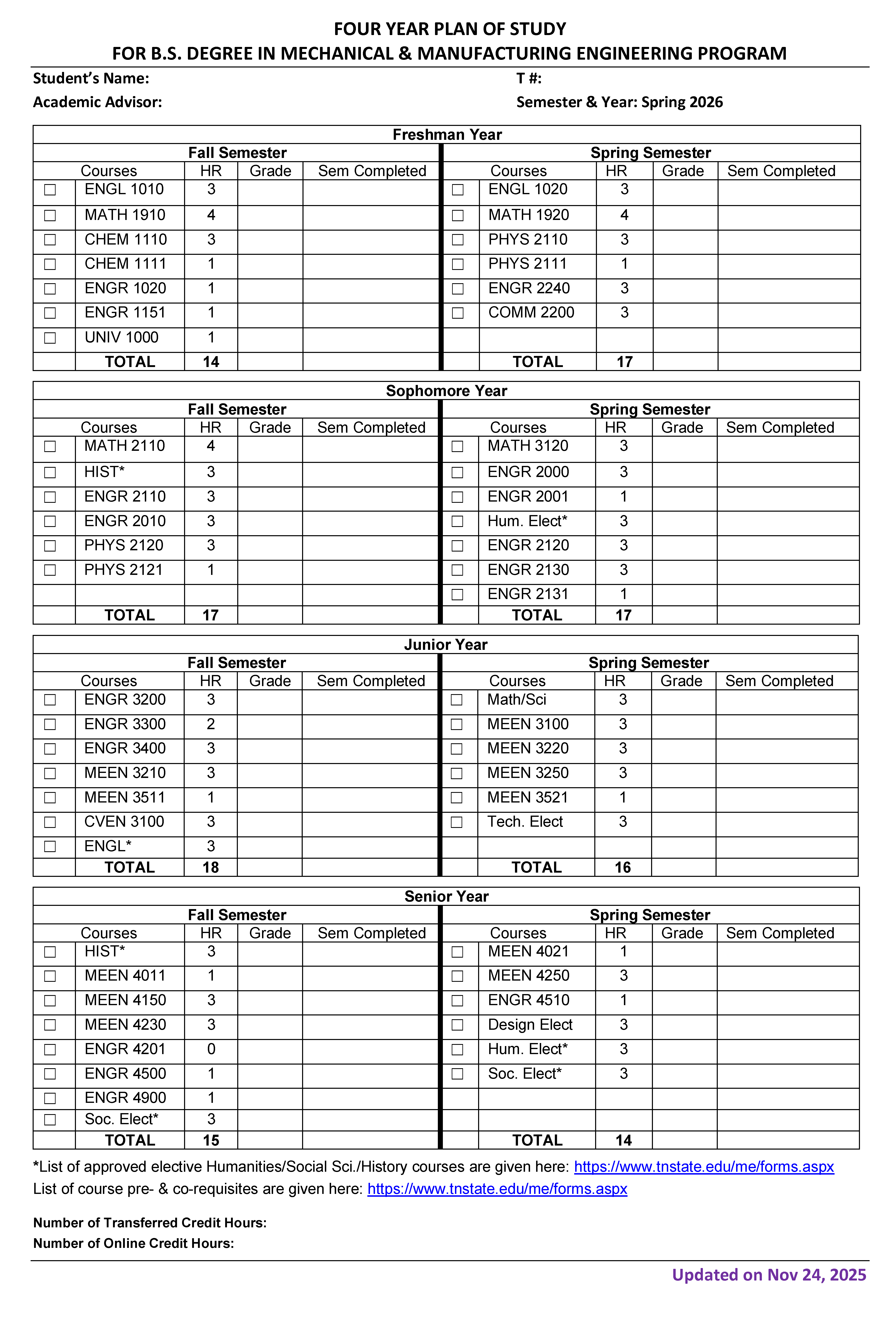- Home >
- Mechanical Engineering
- > Accreditation
Accreditation

Educational Objectives
The following Program Educational Objectives are developed in conjunction with the students, faculty, alumni, and industrial constituents.
1. Establish a proven record of successful engineering accomplishments and be prepared to assume responsible leadership positions to serve industries, or government agencies or embark on entrepreneurship
2. Demonstrate understanding of global engineering practices and the need for life-long learning by making progress toward professional development: industrial training, achieving an advanced degree or certification in engineering or related field
These objectives serve to:
a. characterize the mechanical engineering program at TSU
b. support the mission of the Department, College, and University
The Program Educational Objectives are periodically reviewed by the following three program constituents:
1. Mechanical Engineering faculty members
2. Departmental Student Leadership Committee members
3. Departmental Industrial Advisory Board members
Student Outcomes
Graduates of Mechanical Engineering Programs can demonstrate the ability:
1. to identify, formulate, and solve complex engineering problems by applying principles of engineering, science, and mathematics.
2. to apply engineering design to produce solutions that meet specified needs with consideration of public health, safety, and welfare, as well as global, cultural, social, environmental, and economic factors.
3. to communicate effectively with a range of audiences.
4. to recognize ethical and professional responsibilities in engineering situations and make informed judgments, which must consider the impact of engineering solutions in global, economic, environmental, and societal contexts.
5. to function effectively on a team whose members together provide leadership, create a collaborative and inclusive environment, establish goals, plan tasks, and meet objective.
6. to develop and conduct appropriate experimentation, analyze and interpret data, and use engineering judgment to draw conclusions.
7. to acquire and apply new knowledge as needed, using appropriate learning strategies.
Course Roadmap



